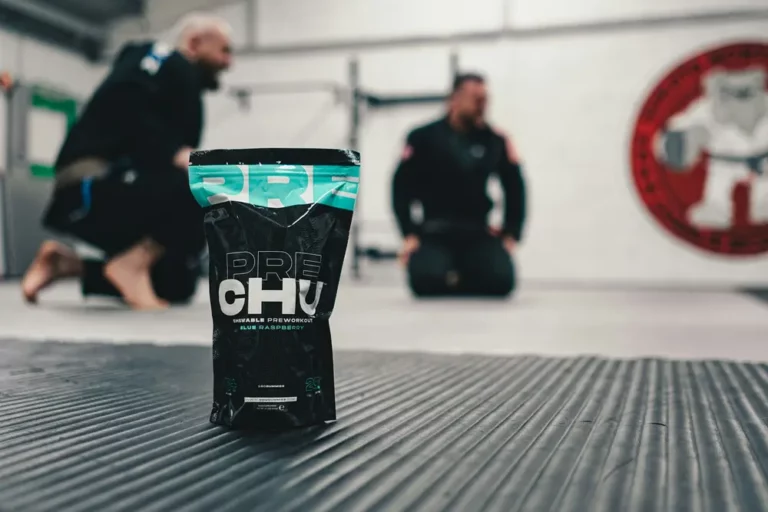Should You Take Creatine Before Bed? Unpacking the Truth
Deciding when to take creatine can feel like solving a puzzle, especially with all the buzz about its benefits. I’ve been there, scrolling through endless forums and articles, trying to figure out the best time to take this popular supplement. And let me tell you, the debate about whether to take creatine before bed is a hot one.
So, should you take creatine before hitting the hay? It’s a question I’ve pondered, and I’m here to share what I’ve learned. From improving sleep and brain function to considerations about hydration and meal timing, there’s a lot to unpack. Stick around as we dive into the ins and outs of taking creatine before bed.
What Is Creatine?
Creatine monohydrate is a compound that’s naturally found within our muscles and brain. It’s fascinating how our body can produce this molecule from three amino acids: glycine, methionine, and arginine. These are synthesized in the liver, kidneys, and pancreas, contributing a total of about 2 grams per day naturally. But here’s where it gets interesting; by adding creatine supplements to our diet, we can significantly amplify the benefits, especially for those of us pushing the limits with strength training and high-intensity workouts.
So, why is creatine such a big deal for those who love hitting the gym hard? Well, it all boils down to energy—specifically, how our muscles get the energy they need during those grueling sessions. Our muscles primarily run on a type of energy known as adenosine triphosphate (ATP). However, during intense exercise, ATP reserves are quickly used up, leading to fatigue and a decrease in performance. Here’s where creatine steps in; it serves as an energy buffer, replenishing ATP levels and allowing us to maintain high performance longer.
Apart from giving that much-needed energy boost, creatine plays a pivotal role in improving exercise performance, enhancing strength, and facilitating faster post-workout recovery. It’s no surprise then that creatine monohydrate, being the most researched and widely used form of creatine, has found its place as a staple supplement among bodybuilders and fitness enthusiasts alike.
In the journey of understanding how creatine can fit into our fitness regimen, it’s crucial to grasp the basics of how to use it effectively. This involves getting to know the loading and maintenance phases for optimal muscle gains and benefits. But before diving into the specifics of when to take creatine, let’s tackle the heart of our topic first—whether taking it before bed makes a difference.
The Debate: Taking Creatine Before Bed
When it comes to optimizing my fitness routine, I’m always on the lookout for ways to maximize my gains and recovery. That’s why the debate around taking creatine before bed piqued my interest. It’s a discussion filled with varying opinions and findings, making it a complex topic to navigate. So, I dove into the research and personal experiences to get a clearer picture of the pros and cons of nighttime creatine intake.
Pros and Cons of Nighttime Creatine Intake
Pros:
- Maximized Muscle Recovery: My research shows that during sleep, our bodies are in prime mode for recovery and regeneration. By taking creatine at night, I’m effectively feeding my muscles when they’re most receptive to nutrients, potentially enhancing the recovery process.
- Consistency Is Key: I’ve found that by including creatine in my nighttime routine, I’m less likely to skip a dose. Consistency is crucial for creatine to exert its benefits, and making it a part of my pre-bed ritual ensures that I’m always on track.
- Combatting Sleep Deprivation: Interestingly, some studies suggest that creatine might mitigate the adverse effects of sleep deprivation on cognitive and physical performance. For me, this is particularly valuable during periods when I can’t get enough shut-eye.
Cons:
- Possible Sleep Disruption: While creatine itself hasn’t been conclusively shown to interfere with sleep, my research underscores the importance of avoiding products with added stimulants or taking excessive doses, which could potentially affect sleep quality.
- Individual Variability: My experience tells me that everyone’s body reacts differently to supplements. Some people might find nighttime creatine intake perfectly fine, while others could experience discomfort or disturbances in their sleep patterns.
Creatine and Sleep Quality
The relationship between creatine and sleep quality is nuanced. On one hand, the body’s natural repair processes during sleep suggest that this could be an ideal time to replenish creatine stores. On the other, concerns about possible sleep disruption cannot be ignored.
From my deep dive, I’ve learned that while creatine shouldn’t directly impair sleep quality for most, factors like individual sensitivity and product formulation play a crucial role. Pure creatine monohydrate, for instance, is less likely to cause issues compared to blends with added stimulants.
Lastly, the dosage is a pivotal factor. Sticking to the recommended dosage ensures that I’m not only maximizing the potential benefits of creatine but also minimizing any risk of side effects, which includes any negative impact on my sleep.
Optimal Timing for Creatine Intake
When it comes to integrating creatine into my fitness regimen, I’ve always found the timing aspect to be a bit of a puzzle. With all the conflicting advice out there, I decided to dive into the research and personal experimentation to figure out what works best for me. Here’s what I found out about the optimal timing for creatine intake, broken down into more digestible parts for anyone else wrestling with the same question.
Creatine Dosage Recommendations
The first thing I tackled was the dosage. It turns out there’s a bit of a consensus among fitness enthusiasts and the science community about starting with a 5g dose per day. This seemed like a reasonable starting point for me, considering it’s backed by quite a few studies. After a week or so, I felt comfortable enough to ramp it up towards 10g, as suggested for those who are getting accustomed to the supplement.
| Phase | Creatine Dosage |
|---|---|
| Loading | 20g daily for 5-7 days |
| Maintenance | 2-5 grams daily |
During my journey, I paid close attention to my body’s response and made sure not to exceed the recommended dosage to avoid potential health ramifications. Especially given the warnings about possible kidney and liver issues.
On days when I decided to push my limits at the gym, I followed the guideline to momentarily increase my intake during a “loading phase.” This involves taking 20g daily, spread out over the day, for 5 to 7 days. Afterward, a maintenance dose of 2-5 grams kept my muscles saturated without overdoing it. Interestingly, this strategy aligned well with the muscle strength enhancement protocols I stumbled across, which recommended a similar approach.
In terms of specific timing around workouts, I experimented with mixing creatine with my morning smoothie, pre-workout meal, or even my post-evening workout drink during the loading phase. On rest days or if I decided to skip the loading phase altogether, sticking with a steady 2-5 grams daily proved effective in maintaining muscle creatine levels.
Combining Creatine with Other Supplements
When I first started taking creatine, I was curious about combining it with other supplements. After some research, I discovered that pairing creatine with certain nutrients can enhance its effectiveness. The synergistic relationship between creatine and other supplements is something worth exploring, especially if optimizing performance is your goal.
One combination I found particularly beneficial is creatine and carbohydrates. Carbs can spike insulin levels, which in turn helps improve creatine uptake by the muscles. I’ve noticed that when I mix my creatine with a carb-rich juice or a sports drink, it seems to work even better for me.
Another potent combo is creatine with protein. Protein provides the building blocks for muscle recovery, while creatine supplies the energy needed for high-intensity workouts. Together, they’ve really helped me boost muscle growth and recovery time. Personally, I prefer blending my creatine with a whey protein shake post-workout for maximum benefits.
Finally, there’s been a lot of buzz about creatine and beta-alanine taken together. Beta-alanine is known for its role in increasing carnosine levels in the muscles, which can help with endurance during high-intensity activities. By combining these two, I’ve experienced noticeable improvements in my stamina and overall exercise performance.
It’s crucial, however, to approach supplement combinations with caution. I always make sure to do my homework and, most importantly, listen to my body. Plus, consulting with a healthcare provider before starting any new supplement regimen can never be overstated. They can help tailor advice specific to your health needs and fitness goals.
Choosing the Right Creatine Supplement
When I’m trying to decide the best way to incorporate creatine into my routine, especially at bedtime, I realize choosing the right supplement is crucial. I’ve learned there’s more to it than just picking any creatine off the shelf. Here’s how I navigate through the options.
Factors to Consider When Taking Creatine at Bedtime
Before I settled on my current creatine regimen, there were several factors I had to consider, particularly about taking it before bed. Here are the key considerations that helped me make my choice:
- Type of creatine: I found out that creatine monohydrate is the most researched and reliable form. Other types like ethyl ester, anhydrous, and citrate not only lack solid scientific backing but are also more expensive. This made my choice easy, sticking mainly to monohydrate for its proven effectiveness.
- Supplementation timing: While nighttime use does not offer significant advantages over other times, it’s essential to ensure it doesn’t disrupt sleep. My experiment and research showed creatine doesn’t directly affect sleep quality or duration if taken on its own and in the correct dosage. That said, I always avoid products with added stimulants close to bedtime to ensure a good night’s sleep.
- Dosage: Consistency in dosage is key for me. Too much can cause digestive issues, and too little may not provide the desired effects. Following the recommended 5g a day worked well, but to avoid any potential digestive discomfort, I make sure not to exceed this amount, especially before bed.
- Combination with other nutrients: I discovered that combining creatine with specific nutrients can enhance its effects. However, at bedtime, I tend to keep it simple to avoid any digestion-related sleep disturbances. A straightforward dose of creatine monohydrate without any extras is my go-to for nighttime supplementation.
- Individual response: Everyone’s body responds differently to supplements, and creatine is no exception. It piqued my interest that emerging research suggests creatine could even support cognition in situations of sleep deprivation. Considering this, I paid close attention to how my body reacted to nighttime supplementation, adjusting as needed to find the optimal routine.
Concluding Thoughts
Deciding whether to take creatine before bed isn’t a one-size-fits-all answer. It’s about listening to your body and observing how it responds to nighttime supplementation. I’ve found that sticking to a simple dose of creatine monohydrate works best for me, especially without adding any extras. Remember, consistency and moderation are key to avoiding any unwanted side effects. So if you’re considering adding creatine to your nighttime routine, start with a straightforward approach and adjust based on your body’s feedback. It’s all about finding what works best for you and your fitness goals.
FAQ – Frequently Asked Questions
Should I Take Creatine Before Bed on Both Training and Non-Training Days?
Yes, for optimal results, creatine should be taken consistently every day, regardless of training status. Consistent daily intake helps maintain saturated creatine levels in the muscles.
Are There Any Digestive Issues with Taking Creatine Before Bed?
Some individuals may experience bloating or digestive discomfort when taking creatine, though these side effects are not common. If you experience such issues, consider adjusting the timing or dosage.







